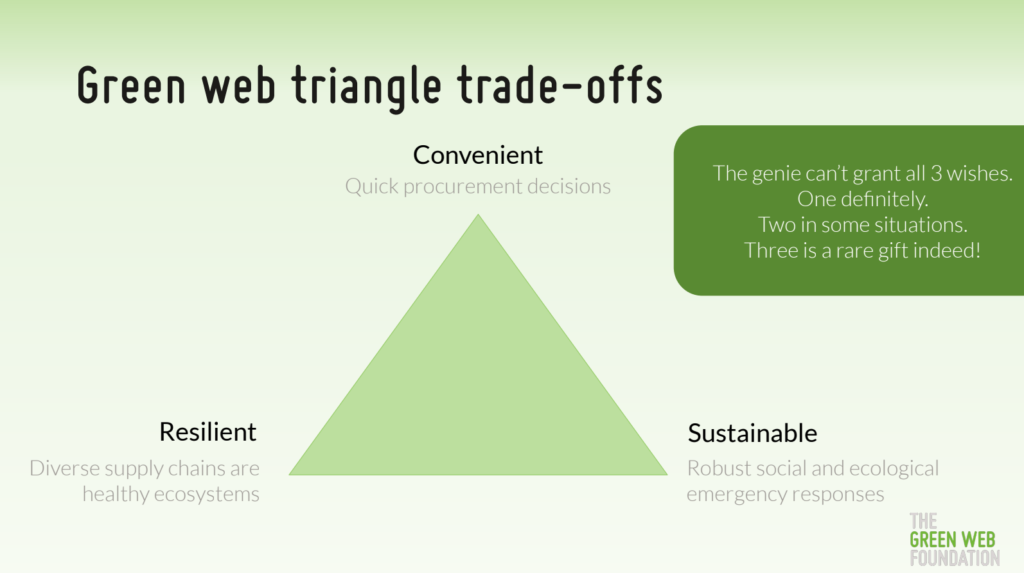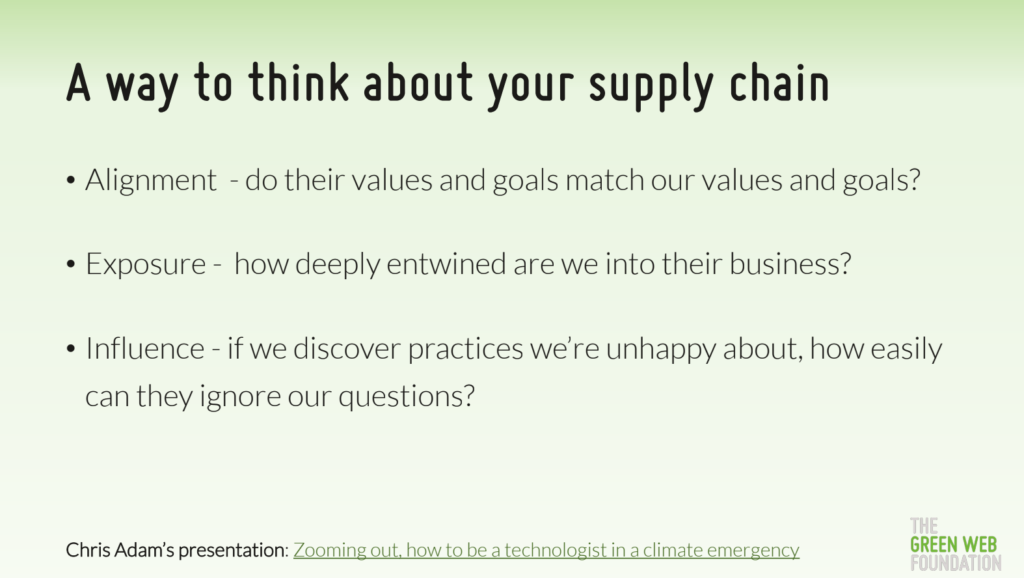Centering the environmental impact of technologies in IT support and IT procurement
Introducing Slammer
Slammer Musuta is a web developer, information security practitioner and head of IT of a non-profit organisation, based in Washington, DC. They provide IT and operational security support to grassroots organizations working for justice through community care. Before that, they were a Mozilla Fellow working on media justice and putting a particular focus on low radio access as a lever for change.

Fellowship Project
Slammer originally comes from grassroots, micro-radio and low-powered radio communities. Over time, they got more interested in internet freedom, digital security and digital rights, while always keeping this grassroots approach as the centre of their work. A guiding principle for them over the years is the goal to break down technical concepts that seem difficult to understand, and to make them accessible, creatable and understandable for communities. In short: to make users active producers in the digital sphere.
At the start of Slammer’s fellowship was the notion that as head of IT, and as part of the digital security community, there is a big knowledge gap on the environmental impact of technologies. This is why Slammer dedicated their fellowship to explore mechanisms on how to close this gap, and bring the environmental impact of technologies into IT procurement processes and into digital security communities. Also in the fellowship, Slammer’s aim was to break concepts such as climate justice and environmental impact into workable concepts that can be used in decision-making processes in IT support and IT procurement.
A key insight that emerged in Slammer’s fellowship was that there are not a lot of models and resources for people in leadership IT positions to understand the questions, and to assess a vendor on their environmental impact. This is why Slammer started to experiment with the Green Web Triangle as a decision-making tool. However, they also found that the lack of resources leads to the difficulty of making the business case to other leadership. In conversation with other IT professionals, Slammer saw that budget is often an additional limiting parameter that needs to be taken into account in the process.


A brief explanation on the triangle that aims to support decisions on digital product, and shows their trade-offs:
Convenient & Resilient: The usual default. Continue with what’s easiest. Ignore climate emergency.
Resilient & Sustainable: Open, ethical suppliers. Accept lack of polish in services in many cases, or do in house.
Convenient & Sustainable: Consolidate existing oligopoly and corporate power in technology.
Next Steps
For the next steps of their process, Slammer wants to continue doing interviews with IT professionals to build a community around this question and find a shared language. They also want to read more on supply chains, because they found that short supply chains are actually a key aspect of the environmental impact of digital technologies. Finally, they want to continue working on the decision-making tool, especially to expand it with value-chains, and identify key trade-offs that appear in most IT support and IT procurement processes. These key trade-offs can serve as a great conversation and decision-making starting point when centering the environmental impact of digital technologies in IT procurement.
In our interview, Slammer said:
“What is important for my further work on this topic is to ultimately reframe what a web developer is: they should not make something work – but they should make that something work well. Both in terms of digital rights, and environmental impact of technologies.”